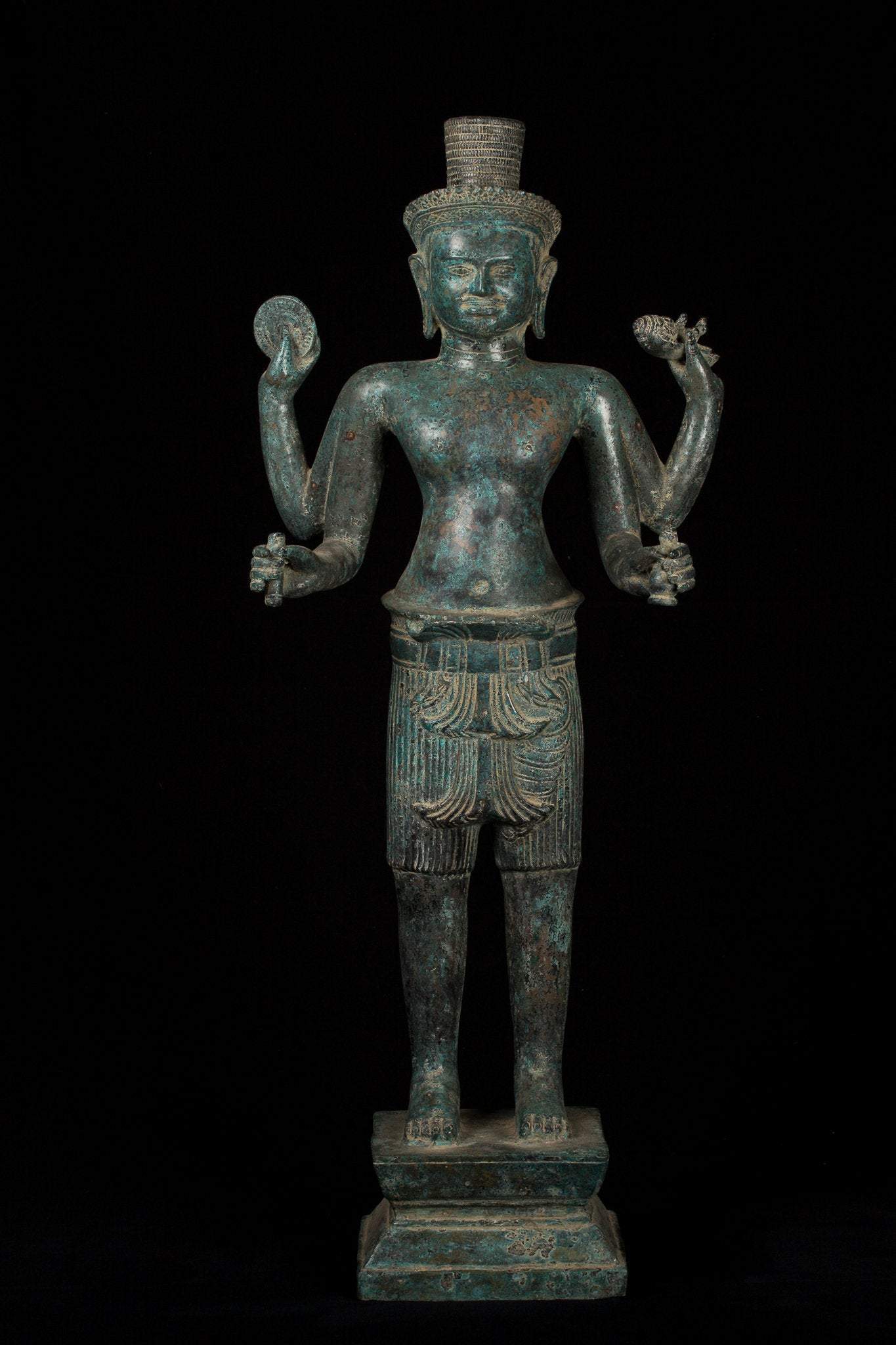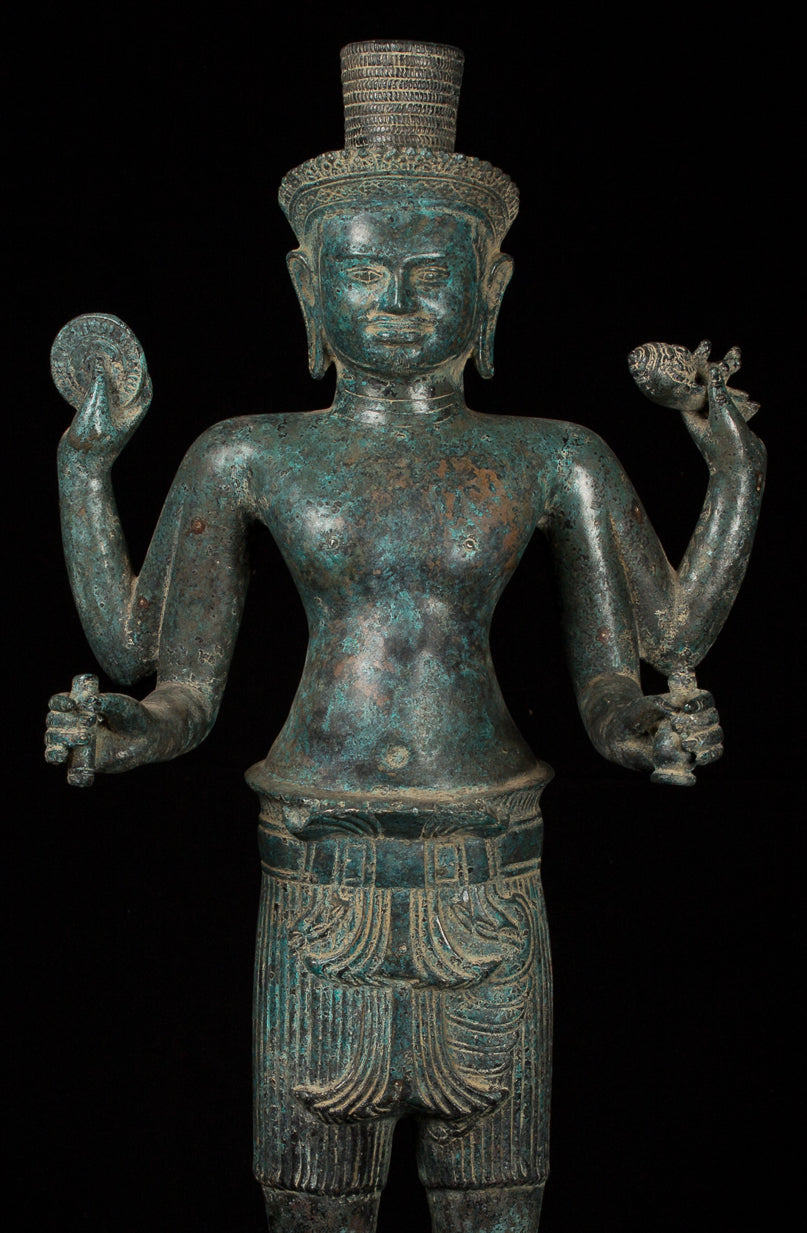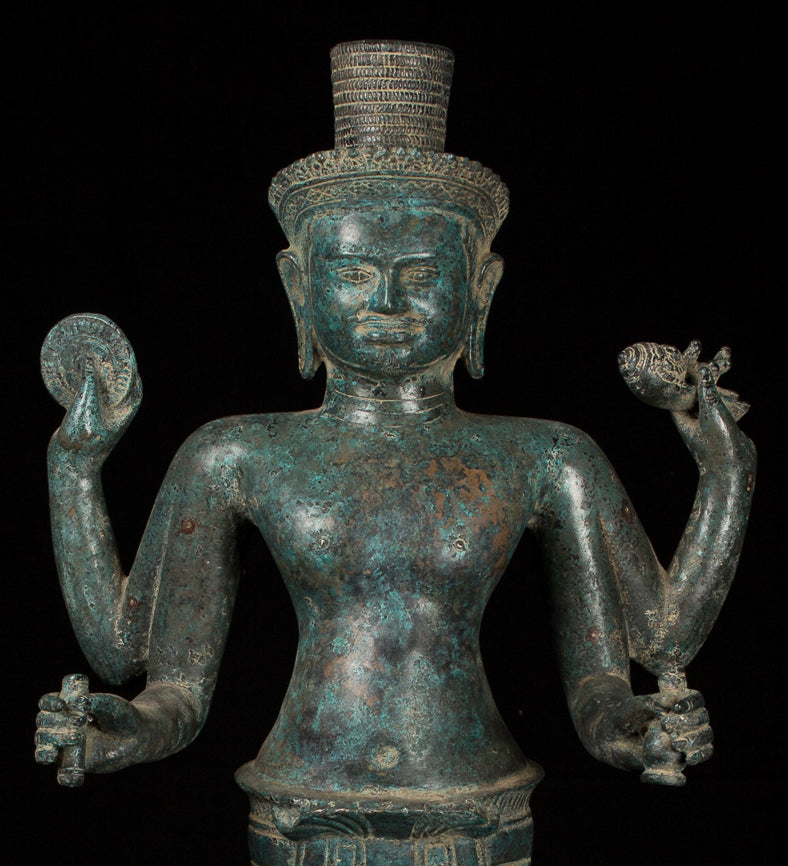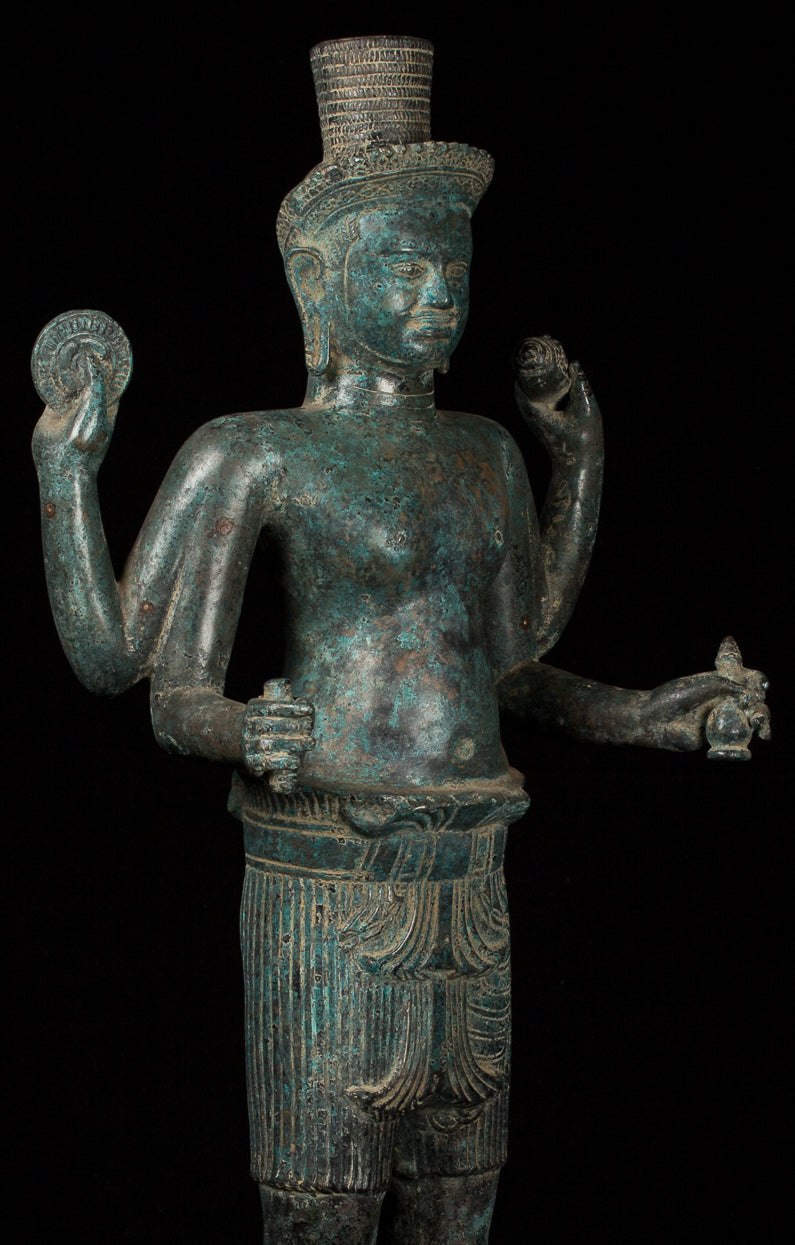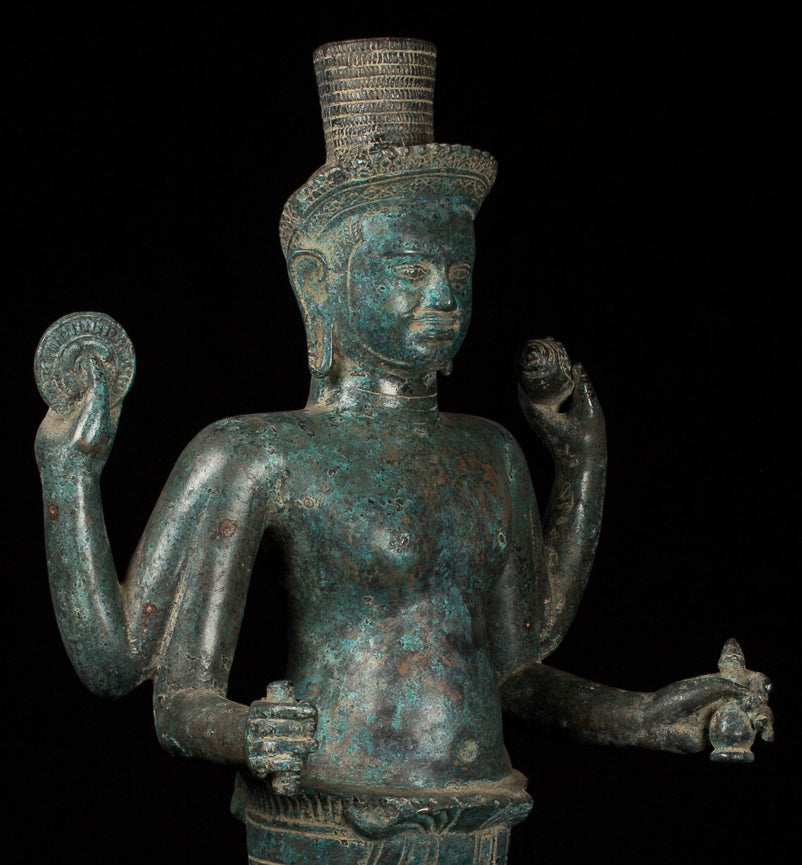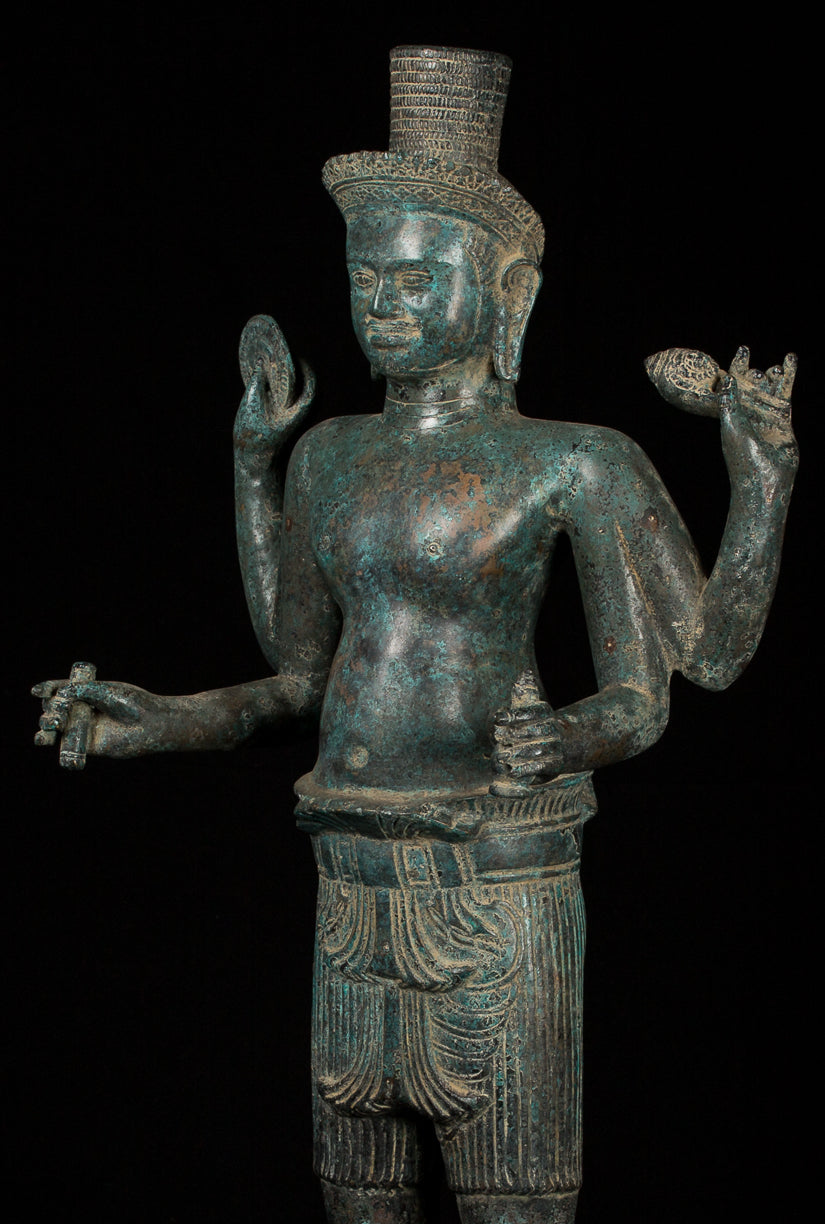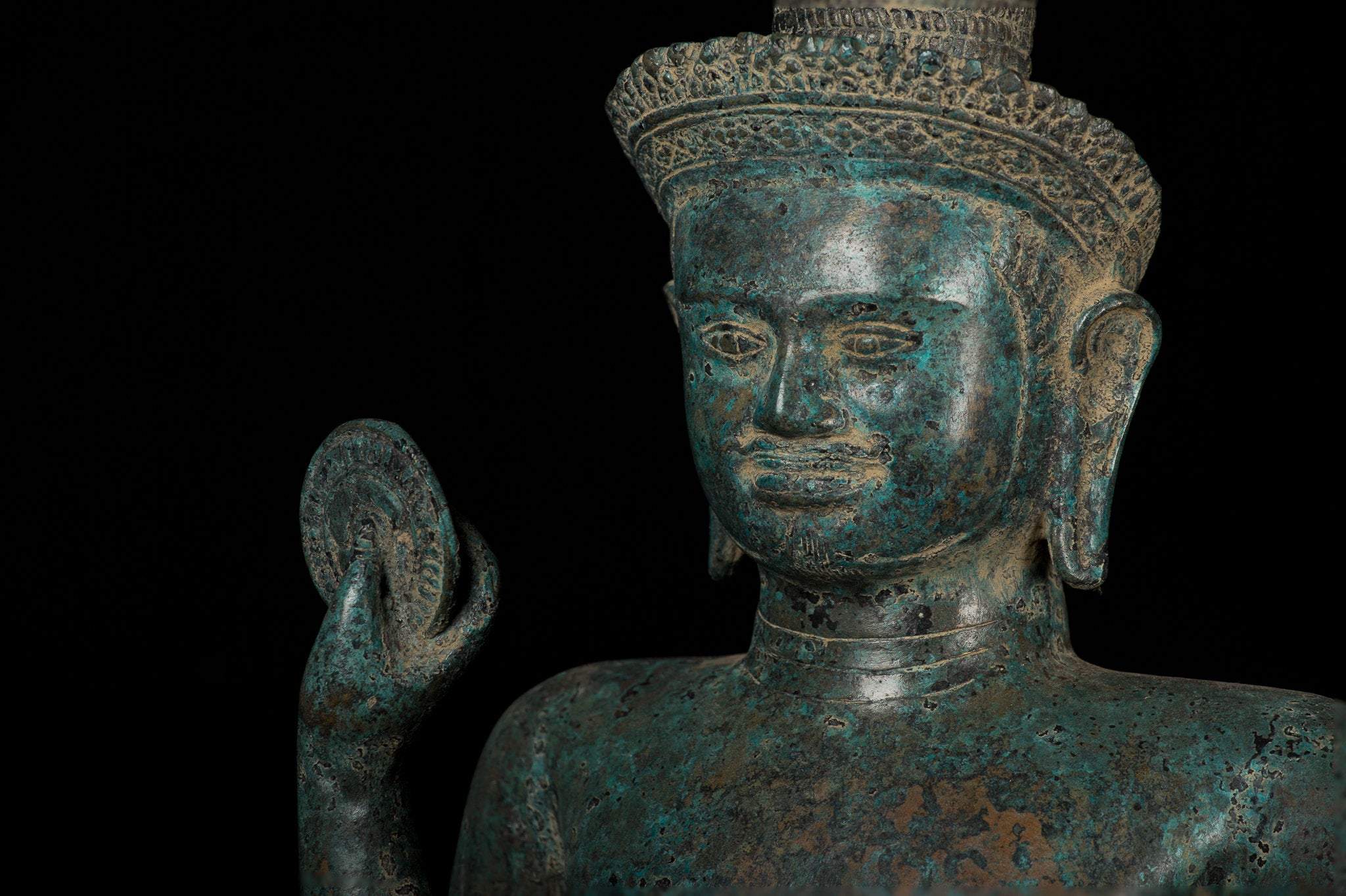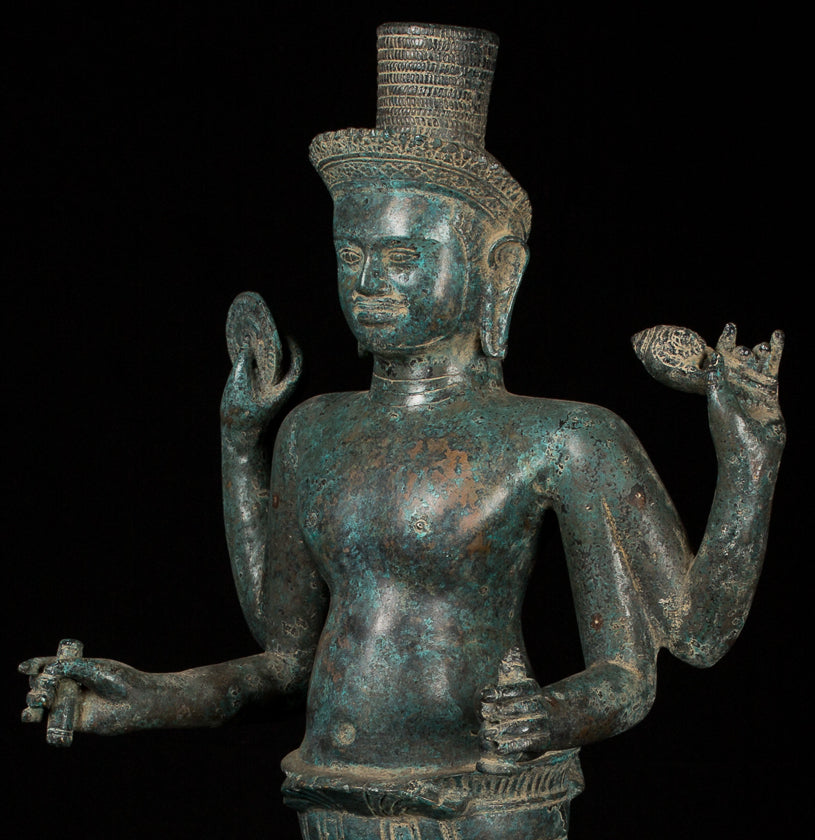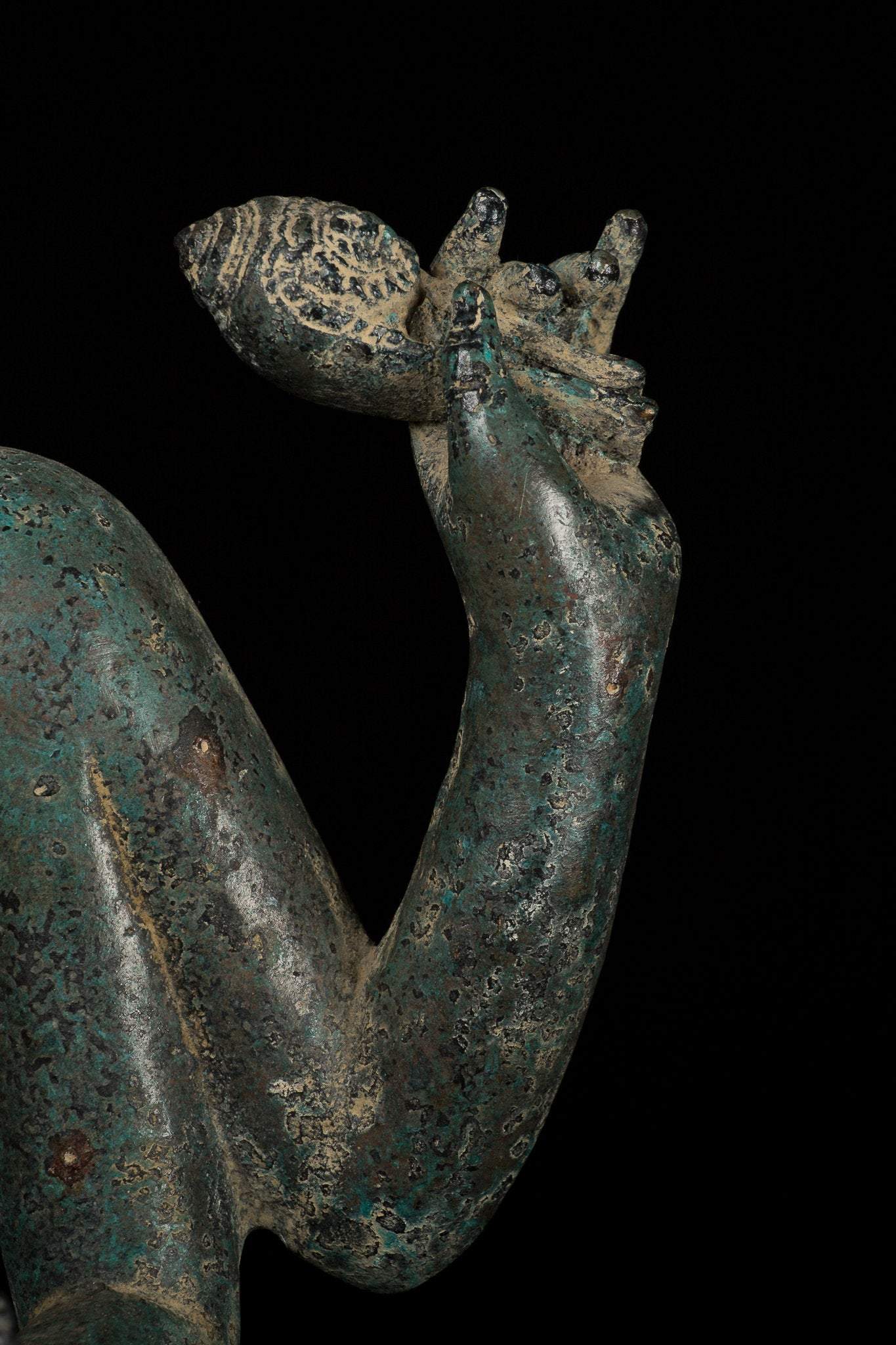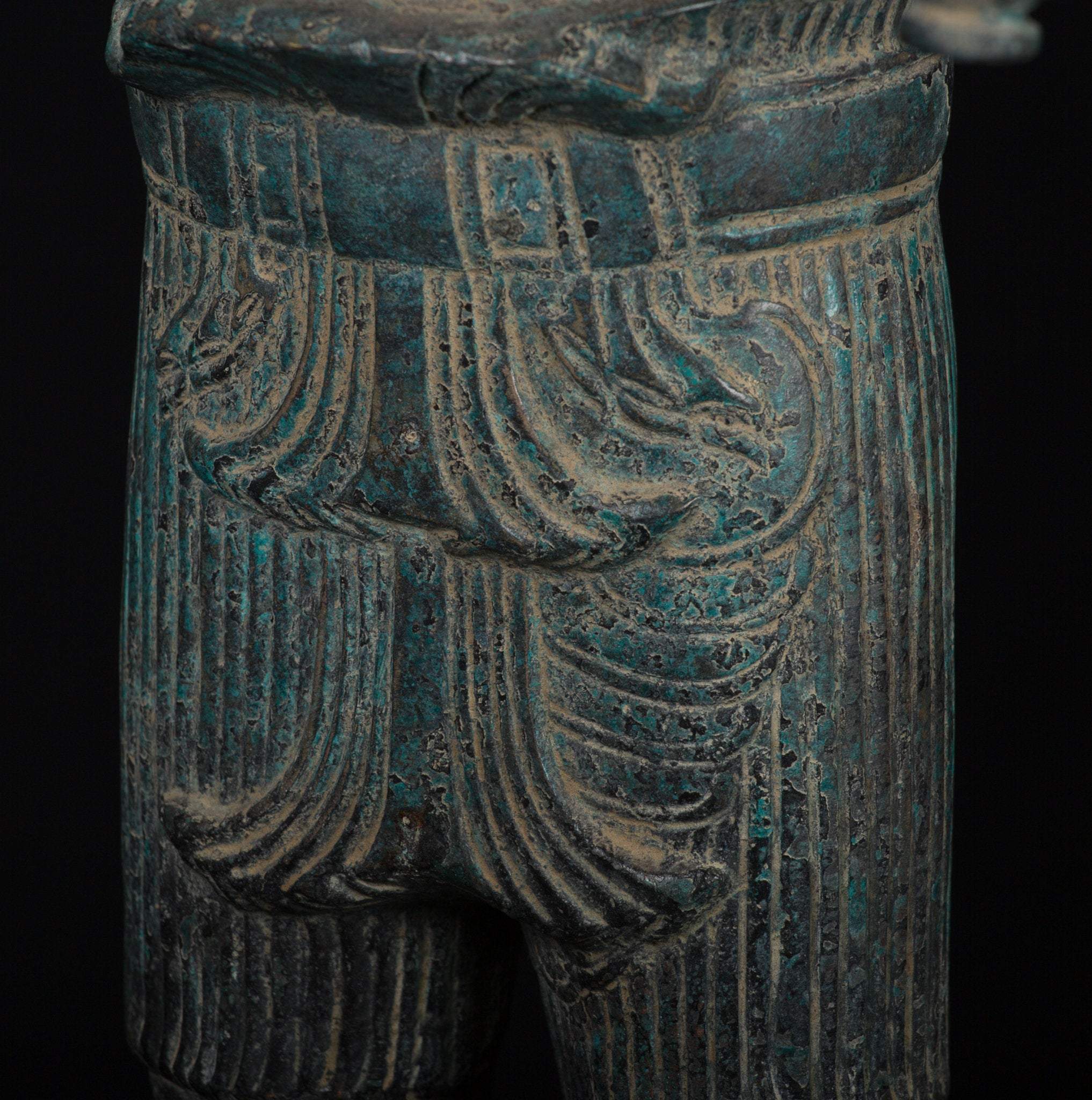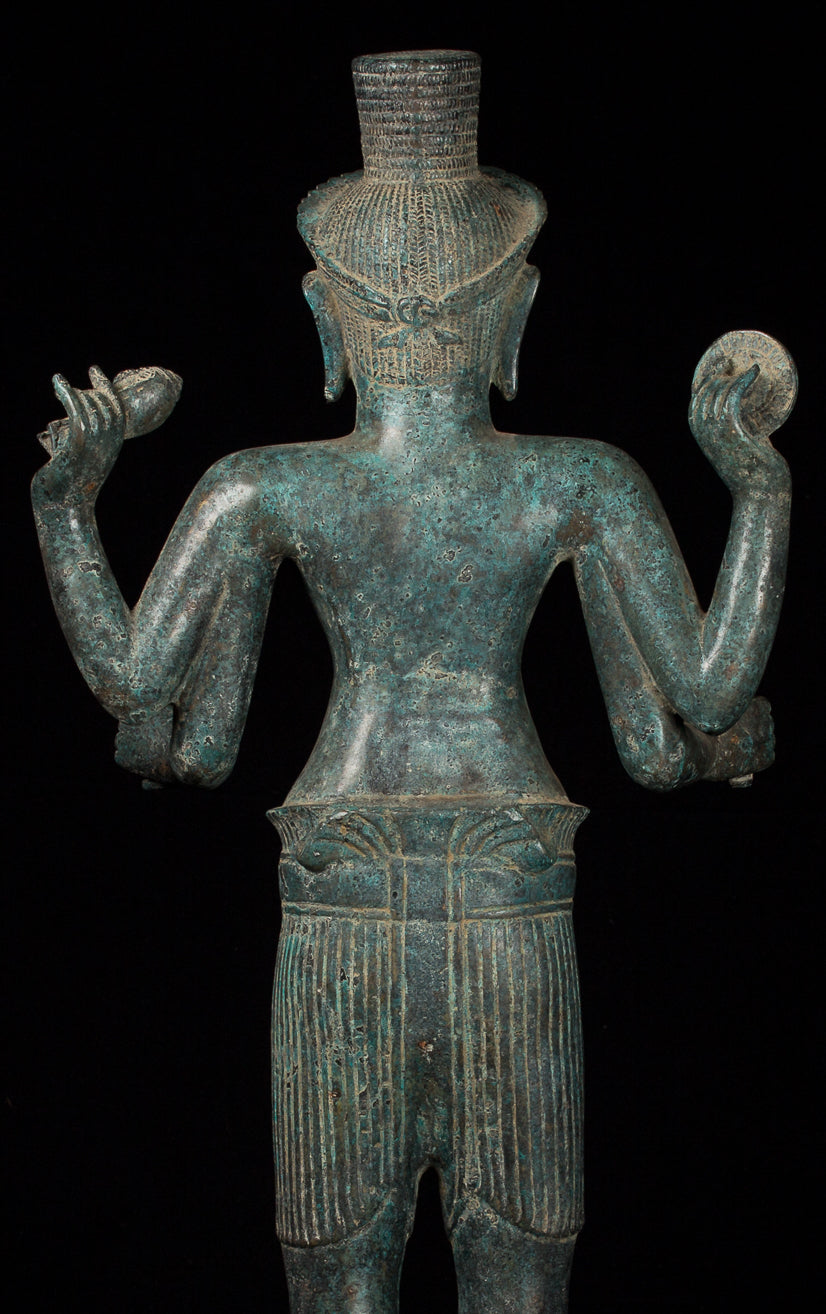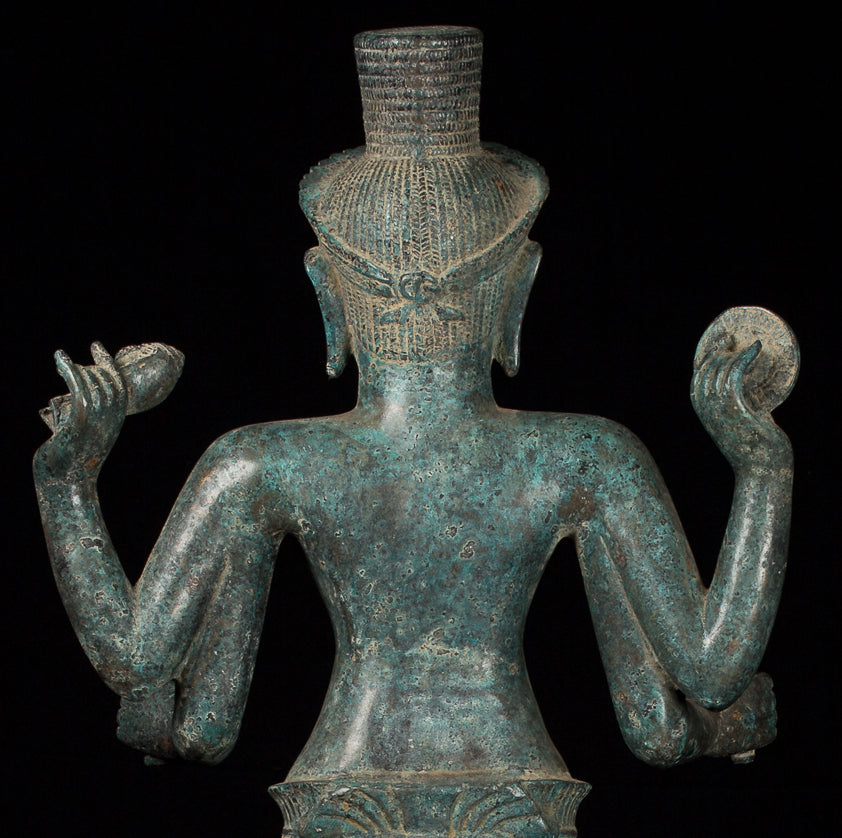-
Antique Khmer Style Bronze Koh Ker Standing Vishnu Statue - 82cm/32"
Measurements - Height 82cm/32"
An antique Koh Ker style bronze Vishnu sculpture. Vishnu is both world protector and preserver, restorer of moral order - he is all-powerful and all-pervasive by nature.
Here, Vishnu is stood samabhanga on a simple pedestal in his four armed form.
The four-armed form of Vishnu represents his omnipotence and multifaceted nature. Each attribute he holds exemplifies a different aspect of his divine character: creation, preservation, destruction of evil, and spiritual liberation. This form reinforces the idea that Lord Vishnu is the ultimate protector and preserver of the cosmos, ensuring its continued existence and balance.
Understanding what Vishnu holds in his hands provides insights into his divine qualities and significance in Hindu theology.
1. The Conch (Shankha):
Lord Vishnu can hold a conch shell, known as the Shankha. The Shankha symbolizes the primordial sound of creation, Om, from which the universe emerged. When blown, the conch produces a resonant sound that is believed to dispel negativity and create positive vibrations, signifying the creation and preservation of the cosmos. It also serves as a call to awaken spiritual seekers from their ignorance and guide them towards the path of righteousness.
2. The Discus (Chakra):
Vishnu may also wield a chakra, a circular spinning weapon. This discus, often referred to as the Sudarshana Chakra, represents the cycle of time, the eternal nature of the universe, and the destructive power of divine justice. It symbolizes the ability of Lord Vishnu to remove obstacles, protect his devotees, and maintain cosmic order by eliminating evil and unrighteousness.
3. The Lotus (Padma):
Vishnu may hold a lotus flower, the Padma. The lotus symbolizes purity, transcendence, and spiritual enlightenment. Its emergence from the mud, yet remaining unstained, represents the potential for spiritual growth and liberation from the material world. Vishnu's holding of the lotus signifies his role as the embodiment of purity, grace, and the source of divine beauty in the universe.
4. The Kalasha:
The kalasha is considered a symbol of abundance and "source of life" in the Vedas. It is referred to as "overflowing full vase" in the Vedas. The Kalasha is believed to contain amrita, the elixir of life, and thus is viewed as a symbol of abundance, wisdom, and immortality.
The Vishnu has perfect balance and proportions which are the key to a fine Vishnu sculpture. The casting is beautiful as you can see in the fine details of the face and hands. Each detail is rendered perfectly.The patina and details of this piece are particularly appealing.
The perfect traditional in appearance Vishnu to bring serenity and timeless style to you home, office or sacred space.
SATISFACTION GUARANTEE - We have been offering SE Asian Art for many years and are proud of the reputation we have developed for fair and honest listings. However, if for any reason, whatsoever, you are unhappy with your purchase please just let us know and we will provide a full refund. We want you to be 100% happy with your purchase.
-
The majority of orders will be shipped with DHL. This is a secure, express and fully tracked service.
Items less than 2Kg we typically ship using Royal Mail.
Once we receive your order we try to ship all orders the same or next working day.
Large and/or fragile pieces requiring palletising, specialist crating and/or extra packaging may take a little longer. Palletised shipments will be delivered curbside.
All orders over 35 GBP will be shipped free of charge.

-
We genuinely hope that all purchases delight.
However, if they do not, regardless of reason, we will refund all orders upon receipt of the unwanted item. Just notify us within 14 days of receiving your order that you wish to make a return and send the piece back to us with 30 days of delivery.
A Buddha statue is far more than decoration.
Whether you have chosen a bronze Buddha statue, a stone Buddha statue, or a delicate wooden carving, the way you display, care for, and interact with your sculpture reflects your understanding of Buddhist tradition and respect for the sacred.


